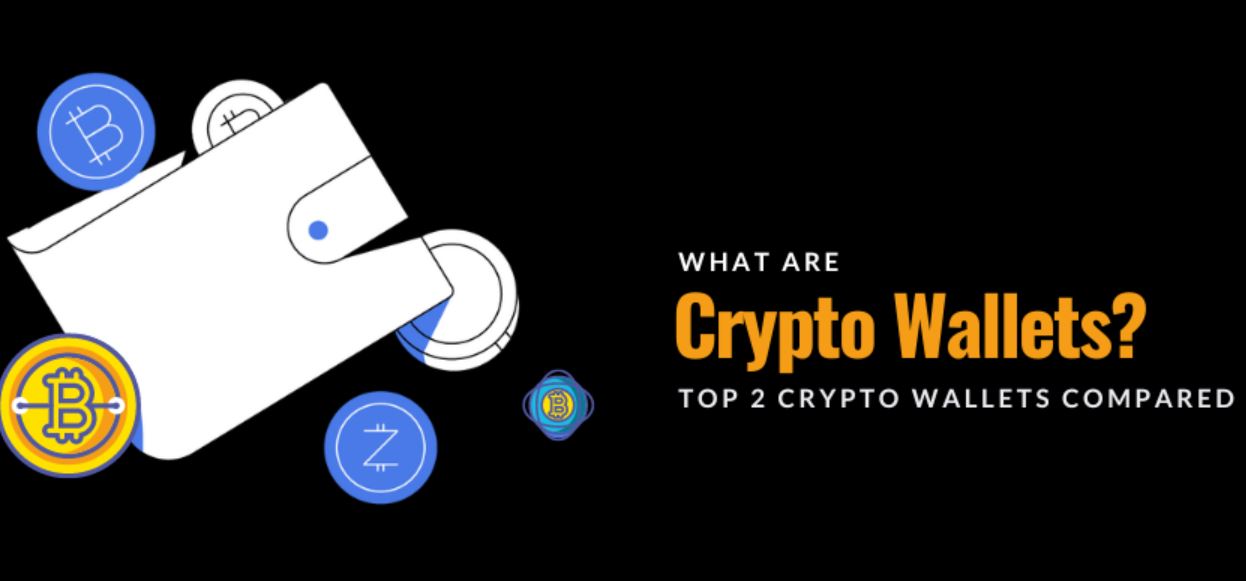What are Crypto Wallets? Top 2 Crypto Wallets compared
When it comes to cryptocurrencies, the world is certainly divided. Large banks may callously call bitcoin to be a Ponzi scheme (albeit still holding billions of dollars worth of crypto funds themselves), while crypto enthusiasts boldly declare it as the future of money.
However, what cannot be debated is the lasting impact crypto and blockchain have had on the financial sector. More people than ever have come to view currencies like Bitcoin and ethereum as real, tangible currencies, and investors around the world today recognize them as a risky but lucrative investment opportunity.
Even certain countries with weaker native currencies have adopted cryptos as their national currency. All of this raises one natural question: Are cryptos really viable for the average, non-tech-savvy users? The answer is not so simple.
Although crypto adoption has skyrocketed recently, it still isn’t as straightforward as swiping a credit card to make a payment. Most users don’t work with blockchain development companies; they do not fully understand how crypto works, and concerns around the legality and safety of transferring cryptos aren’t much help to the cause.
Central to this issue of adoption are crypto wallets.
In this post, we’ll take a deeper look into what a crypto wallet is, why it is essential to have one as well as compare the leading types of wallets to help you decide which one could be the best for your specific use case.
What are Crypto Wallets?
In simple language, crypto wallets are software built for the purpose of storing and trading cryptocurrencies. However, these don’t operate similarly to physical or digital wallets in the sense that they don’t hold the currencies within them.
Crypto wallets are made of two major parts, a public key, and a private key. While the wallet doesn’t hold the cash itself, as mentioned, it holds these keys that allow the blockchain to identify you as the owner of your coins and assets.
Try to think about the public key as your wallet’s address; this is what other users need to know if they wish to send you any crypto. Your public key is visible to the entire blockchain and is, in fact, required for the process of ‘Block generation.’ Contrast that with your private key, which acts more like the password to your crypto wallet. It is only visible to you. Sharing your private key can lead to massive security risks, which can make you lose access to all your crypto assets.
Crypto wallets mainly vary between a few different types in terms of how they handle and access your private keys. But before diving into the types, let’s take a moment to figure out why you need one.
Why Do We Need Crypto Wallets?
The simplest answer to the question of why one needs a crypto wallet is because it gives us more control over our assets and coins. Typical retail investors and regular users buy cryptocurrencies from crypto exchanges. These are companies that let us buy and trade cryptos, and any crypto bought at these platforms remains as a deposited balance at these platforms. A regular user cannot really bypass these exchanges as they make buying and selling crypto really convenient and easy, but the catch is that we don’t really own the assets and currencies we have deposited within the exchange.
Not to say the exchange will rob users of their investments; as long as you buy from a trusted and established exchange, this shouldn’t be a problem. The problem, however, is that the bigger your exchange, the bigger a target it has on its back from hackers and attackers. In case of an attack of if the exchange goes bankrupt, users could lose all of their currencies and assets.
This is the primary reason why we need a crypto wallet, security. Wallets keep our crypto safe from third-party threats and give us full ownership of our assets and investments. Although thanks to leading blockchain developers, exchanges have gotten really safe over the past few years. These days, it can be acceptable to have a modest deposit with them at all times, although a wallet is still mandatory for people investing heavily in cryptos.
Types of Crypto Wallets
Crypto wallets come in two major flavors: Hot and cold. Hot wallets are software wallets that can connect to the internet; these include mobile and desktop app-based wallets. Cold wallets are hardware wallets that remain disconnected from the internet; these typically look like USB sticks, and even your private key written on a piece of paper counts as a hardware wallet.
Security vs. Convenience
In trying to select what wallet to use, the central tradeoff a user faces is that of security against convenience. Hardware wallets are incredibly secure, given that attackers can’t reach them unless the device is physically stolen. This, however, also means that using and transacting via your hard wallet isn’t particularly convenient.
Software wallets, on the other hand, are literally at our fingertips. They make crypto transactions incredibly easy but come with the added risk of being connected to the internet at all times.
We can already see how one can differentiate different wallet types based on their needs. If you’ve bought a lot of crypto for long-term investment purposes, it makes sense to invest in a hardware wallet. However, if you are into crypto trading or keen on using it as regular currency for frequent transactions, it might make sense to buy a software wallet.
Let us now dive into the specifics and compare some popular wallets options out there:
1) Hardware Wallets
As mentioned above, these focus more on security as opposed to convenience. Therefore, hardware wallets are designed specifically to keep your public key as safe as possible. Popular options in this category are:
Trezor Model T
This is Trezor’s latest hardware wallet, retailing at around $200+. The wallet features a touch screen, a micro SD card slot, and a USB connector to link with your PC. On the software end, Trezor wallets are equipped with their open source user interface named Trezor suite, which depending upon how much of a skeptic you are, could be a good or a bad thing. Trezor suite runs natively on your device as opposed to via a web app, adding an extra layer of security. In fact, the wallet seems explicitly designed to maximize features without sacrificing security. Trezor Model T allows more than 1800 tokens and coins.
Ledger Nano X
Priced slightly lower than the Model T, the Nano X comes in it at about $150. It is equipped with an LED screen and supports Bluetooth connectivity which lets you connect your wallet with your phone or computer. The Ledger Nano X supports more than 5000 coins and tokens.
The bottom line here is that the Model T comes with more features and slightly better security but supports fewer coins and is more expensive compared to the Nano X. Both brands have cheaper alternatives that offer fewer features but are good enough for someone on a tight budget.
2) Software wallets
This could be a large category, but I’ve picked just the best mobile wallet and the best desktop wallet to keep this brief.
Coinbase wallet – Best Mobile Wallet
As you may know, Coinbase is one of the cryptocurrency exchanges that let you trade cryptos online. The Coinbase wallet is their mobile app-based wallet that integrates with their exchange. The reason why Coinbase wallet is so popular is that it is incredibly easy to use and beginner friendly; being connected to an exchange also helps reduce the complexity of trading and using cryptos. People who aren’t as tech-savvy or who are new to crypto are likely to use a mobile wallet and spend their crypto much like fiat currencies, which is why the Coinbase wallet is a great option for folks just starting out in the crypto world.
Exodus – Best Desktop Wallet
Although Exodus has a companion mobile app, it is mainly designed for the desktop. It is compatible across Mac, Linux, and Windows and supports more than 200 cryptocurrencies. Much like Coinbase, Exodus is compatible with its own exchange. However, the exchange has some serious limitations and high transaction fees. Transactions, however, are easy and fast on Exodus’s much lite and appreciated client, which is also compatible with the above-mentioned hardware wallets.
Conclusion:
Making sense of blockchain and cryptocurrencies can be hard, and picking the right wallet from a whole host of options can make it even more so difficult. But understanding your needs can help you navigate the crypto space with ease. If you are a long-term investor in crypto, opting for secure hardware wallets can be a great investment. If you are a tech enthusiast or a crypto trader, mobile and desktop wallets are your best bet. Regardless of your needs and goals, there is an option for everyone. Which crypto wallet do you prefer the most?
Check out: Partner With A Cryptocurrency Wallet Development Company and ensure secure fund management

